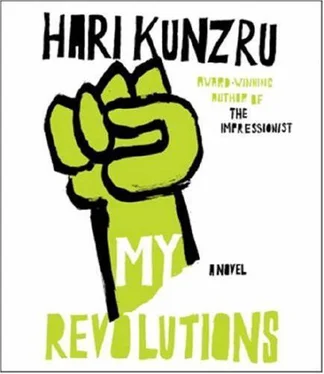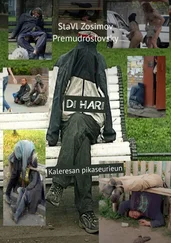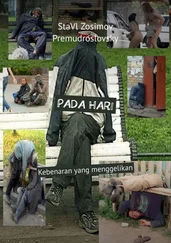As the march approached the American embassy it came to a halt. Word filtered back that the police were blocking the entrance to Grosvenor Square. Comrade Bob announced that in his opinion things were about to turn ugly and he, for one, was not about to get arrested to further the political careers of the gang of opportunist Trots who’d called this tomfoolery. I told him he could do
what he liked. Of all the VAG people, only Alan came along with me as I pushed my way forward. “I wish I had a mouth-guard,” he said. I looked blankly at him. “You know,” he explained, rolling his shoulders like a rugby forward, “scrum down.” I had the disconcerting sense that Alan, with his horsy face and public-school good cheer, was just pitching in. Whatever was up, he’d want to be part of it. It could be going over the top on the Western Front or pushing corpses into a pit, just as long as there was a team element.
Soon we became part of the crush, staggering from side to side, pressed forward by the crowd and back by the police. A double line of helmets was just visible over the heads of the people in front of us. Behind the cops, press photographers were holding their cameras up high, trying to get shots of us looking threatening. Around me some people were laughing; others were angry or beginning to panic. A thin girl in a plastic raincoat was twisting around, beating her hands against the back of the man in front of her. “I can’t breathe,” she sobbed. “I can’t bloody breathe.” Another girl told her not to worry, showed her how to make some room with her arms. I was heartened by that. We were helping each other. We were the People and this was our day.
Something came sailing over my head, exploding in a puff of white. A flour bomb. Then another one. I heard whistles and the sound of screaming, and felt a sudden violent lurch backward. For the first time, I saw truncheons raised over the line of helmets, coming down once, twice. A chant cascaded forward from the mass of the crowd. “Hands Off Vietnam! Hands Off Vietnam!” and quickly we were all shouting, enjoying the power of the words, punching the air and throwing peace signs at the enemy. Horsemen had appeared behind the foot soldiers, shying from side to side. Under the roar of the chant you could hear the percussive sound of hoofs on the paving stones.
There was a convulsion and I lost sight of Alan. Then I was right at the front, facing the first line of police constables, who were straining to keep their arms linked. Behind them, one or two of their superiors were getting nervous, jabbing with their truncheons,
screaming at us to move back. Their jabs became blows, but there was nowhere for us to go. Order was beginning to break down. Suddenly a boy was ejected from the friendly cocoon of the crowd, somehow squeezing through the forest of legs and arms to emerge behind the police line. He couldn’t have been older than seventeen, with tousled hair and a big cardigan that looked like his mum had knitted it. I watched him turn left and right, realizing he was completely on his own. He tried halfheartedly to run, but he didn’t stand a chance; a second’s grace and then they were onto him, four of them pulling him down and carrying him bodily away. To my left someone else broke through, a guy in a crash helmet who didn’t even make it to his feet before he was buried under a pile of uniforms, all trying to get a — st or a boot in. Someone tore his helmet o, Underneath he had a beard and a mop of curly black hair. He writhed around, yelling and kicking. A constable grabbed a — stful of hair and a sergeant, not bothering to hide it from the cameras, punched him hard in the face. He went limp and they dragged him o,
Frightened, I pushed myself back, only to — nd myself shoved forward again, barreling into a policeman who tripped, breaking his hold on the man next to him. Flailing around, I tried to stay on my feet. All about me police and protesters were grabbing at one other for balance, like couples performing a violent jig. A great surge from the belly of the crowd had broken the police line, forcing the front few rows into the open space of the square. I just about kept my footing, wheeling around in panic to see if I was about to get attacked. Around me, others were doing the same thing. For a moment, disoriented, we hung back; then we were running into the square, in ones and twos and then all together, the whole ragtag London mob, students and street hippies and East End mods and striking builders and Piccadilly junkies spilling like an over.owing council bin into the big green open space, superciliously surveyed by the elegant townhouses of Mayfair.
The embassy was — and is — an imposing modernist bunker, with a short.ight of steps leading up to the main entrance. A line of
Black Marias had been drawn up outside. I sprinted toward it as fast as I could. Coppers were running here and there, some trying vainly to push people back, others engaging in weird comical chases with individuals unlucky enough to have caught their eye. I zigzagged, looking out for horses. My heart was pounding. Were we about to storm the building? Earlier there had been talk of armed guards, snipers on the roof, but I was sure we wouldn’t stop. If somebody got killed, it would be their fault, not ours. This was it, our Winter Palace. This was 1917. I swerved away from a couple of policemen, but they weren’t interested in me. One had lost his hat. The other was covered with flour. They were desperate to get back to their mates, who were hastily hopping over the ornamental iron fence in front of the embassy.
Faced with this second police line, our charge ran out of steam. People were still pouring into the square, but we’d stopped short at the fence, milling around, shouting and waving banners. The atmosphere had changed. We’d seen what would happen if we got caught, so there was both a new apprehensiveness and a new anger bubbling in the crowd. A constant rain of missiles was flying over my head. Not just flour, but marbles, bottles, clods of earth, broken banners, bits of fence. Someone had let off a smoke bomb. I could see a policeman lying on the ground, unconscious. I picked up a placard so I had something to defend myself with.
Then they charged us with the horses and the scene turned medieval. As I watched the battle from my spot under the tree, I realized this was as far as we were going to get. We were a temporary crowd, a mass of disparate people. When threatened, there was nothing to hold us together; we had neither the guts nor the organization. And perhaps not the imagination either. How many of us would know what to do if we got inside the embassy building? How many would freeze, then run back down the stairs into the world we knew?
From beneath the tree, I watched the police make little sorties, hauling people back with them. Everything seemed to be happening at a distance, on a screen. Suddenly I found myself thrown forward
on to the churned-up grass, my palms squishing into cold wet mud. Snapping back into close-up, I rolled my shoulders and windmilled my arms, trying to shake the grip that had tightened on my jacket, only to find a second pair of hands lifting me up by the waistband of my jeans so my feet lost contact with the ground. Someone took hold of my legs. Someone else grabbed a handful of my hair. Lolloping along as fast as they could, the policemen frogmarched me toward the fence and threw me over. Before I could pick myself up my arms were twisted behind my back and someone punched me hard in the stomach. At that point I started to lash out, from fear as much as anything. A new group of hands lifted me up, landing a few more workmanlike blows as I tried to get away. There was little real malice in it; I think by this time they were too tired to be properly nasty. My face was mashed against some copper’s blue serge tunic; I could hear his labored breathing as he helped cart me along, smell his reek of sweat and cigarette smoke. “Get out of it, you little cunt,” he muttered. I was thrown face first into the back of a van, where I sprawled on the ridged metal floor, winded and gasping for breath. I found myself wondering if the stone-throwing girl had seen my arrest, had seen me fighting back, like her.
Читать дальше












